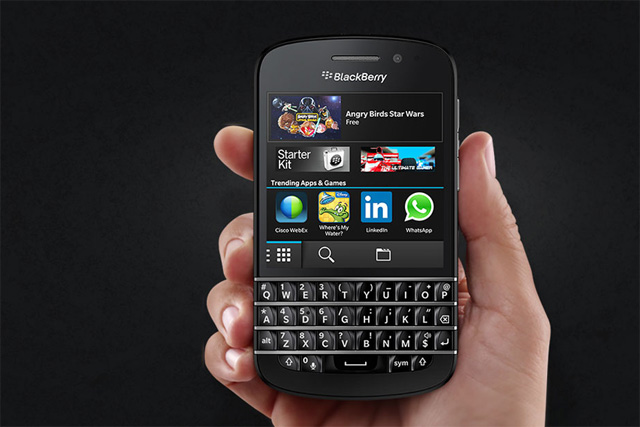
Rob Orr, UK managing director at BlackBerry, said the company was engaging with lifestyle publications to ensure "more people understand who we are, what we are about and what we are building".
In order to reach a different audience, BlackBerry launched the Q10 phone exclusively with upmarket retailer Selfridges before rolling it out to other retailers across the coming week.
The phone is being aimed at the premium market with the handset currently costing £580, while Vodafone is offering it on pre-order for £37 a month with unlimited calls and texts and 1GB of data.
Orr said: "There is obviously going to be a part of the market that can’t afford to spend £580 on a phone or £37 a month [but] consumer behaviour is changing and people are spending more of their disposable income on consumer electronic gadgets.
"I look at the numbers on a daily basis and the number of phones sold in the £500 plus segment is growing very fast."
BlackBerry believes the premium end of the smartphone market is changing with the shift being exemplified by the changing nature of contracts being offered by operators.
Orr describes , which allows consumers to swap mobile phones mid-contract, as a "cracking innovation" that gives greater "transparency to the handset price".
He added that people "want to have the latest phone as soon as they come out rather than having to wait until month 21 [of their contract]".
BlackBerry is launching its Q10 phone at the same time as the much-anticipated Samsung Galaxy S4, which rolled out in the UK this weekend.
As a result, Orr was reluctant to detail marketing plans for the Q10 to avoid giving away any secrets due to the "insane level" of competition.
However, he did confirm the overall marketing push will fit into the brand’s over-arching "keep moving" marketing strategy, which it launched in January for the BlackBerry 10 operating system.
Orr argued that he "absolutely believes" there is a unique place in the market for the Q10 in the face of the Samsung Galaxy S4 launch because of its physical qwerty keyboard.
He concluded: "There is a big space out there for a physical keyboard and the market is not going to go away – it is here to stay."



.jpg)
.jpeg)
